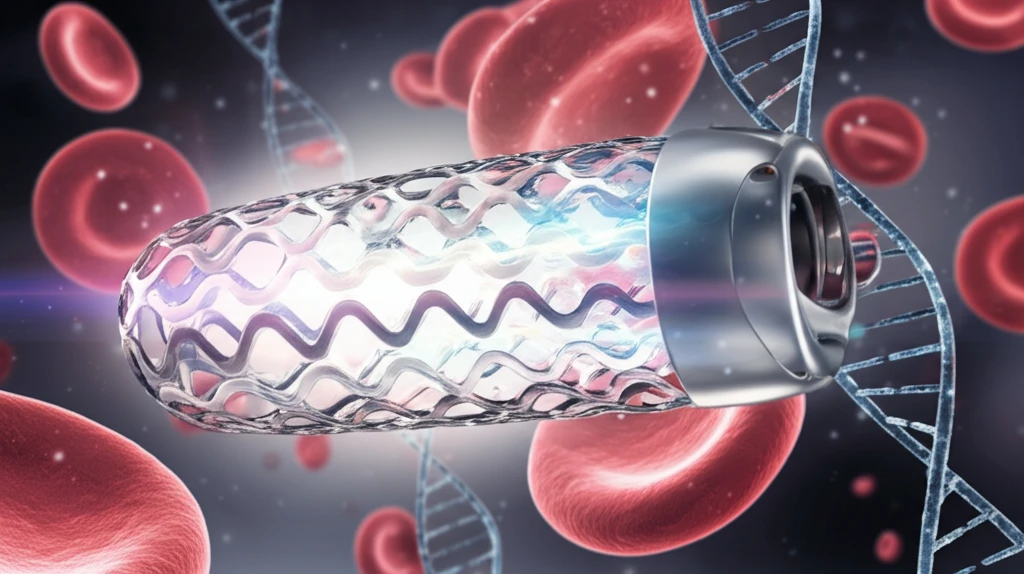
Heart Health Revolution: Advanced Coatings Extend Life of Cardiovascular Implants
"Discover how innovative surface layers on NiTi alloy implants are reducing complications and improving patient outcomes in cardiovascular treatments."
Medical science is constantly evolving, pushing the boundaries of what’s possible in patient care. Cardiovascular implants, essential in treating heart conditions, are benefiting from cutting-edge materials science. The focus is now on enhancing the biocompatibility and longevity of these life-saving devices.
One such advancement involves the use of Nitinol (NiTi), a shape memory alloy celebrated for its flexibility and resilience. NiTi implants can simplify surgical procedures and provide sustained support in cardiovascular applications. However, like all medical materials, NiTi isn't without its challenges.
The primary concern lies in the potential release of nickel ions from the alloy into the body, which can trigger adverse reactions. Scientists are tackling this issue head-on, developing specialized surface treatments to create a barrier between the implant and the body’s tissues. One particularly promising solution is the application of hybrid a-CNH+TiO₂+TiN surface layers.
The Science Behind the Surface: a-CNH+TiO₂+TiN Coatings

Researchers have engineered a novel hybrid surface layer, combining amorphous carbon (a-CNH), titanium dioxide (TiO₂), and titanium nitride (TiN) on NiTi alloys. This multi-layered coating is designed to minimize nickel ion release, enhance corrosion resistance, and improve the overall biocompatibility of cardiovascular implants. The process involves a combination of glow discharge oxynitriding and radio frequency chemical vapor deposition, creating a robust and integrated surface.
- Reduced Nickel Release: The coating acts as a barrier, significantly limiting the release of harmful nickel ions into the surrounding tissues.
- Enhanced Corrosion Resistance: The TiO₂ and TiN layers provide a protective shield against corrosion, extending the lifespan of the implant.
- Improved Biocompatibility: The amorphous carbon layer promotes better interaction with blood and reduces the risk of blood clot formation.
- Decreased Platelet Activation: The modified surface minimizes the activation of platelets, lowering the potential for thrombosis.
The Future of Cardiovascular Implants
The development of hybrid surface layers like a-CNH+TiO₂+TiN represents a significant step forward in cardiovascular implant technology. By addressing the challenges associated with NiTi alloys, researchers are paving the way for safer, more durable, and more effective medical devices. While further testing and clinical trials are essential, these innovative coatings hold tremendous promise for improving patient outcomes and expanding the range of applications for NiTi shape memory alloys in cardiology.
